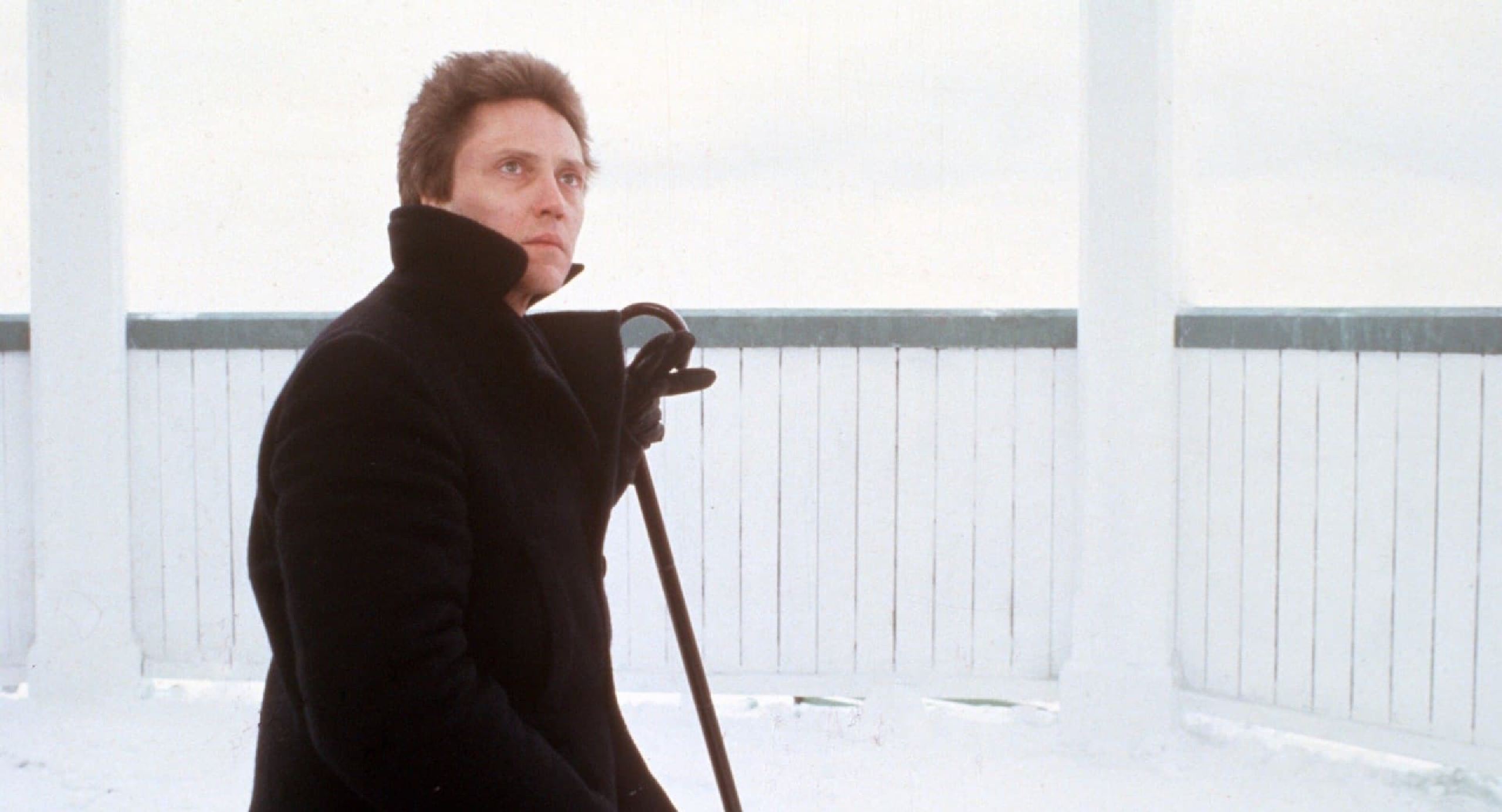The Dead Zone – Film Review
Published September 28, 2023

Director David Cronenberg has made a name for himself in the world of cinema with his unique blend of psychological horror and visceral body horror. In The Dead Zone, he takes a departure from his usual thematic terrain, adapting Stephen King‘s novel into a more subdued and character-driven narrative. Released in 1983, the film explores the life of Johnny Smith, a man who awakens from a coma with psychic abilities, and delves into the ethical dilemmas and personal struggles that come with this extraordinary gift. While The Dead Zone may not be a masterpiece, it offers a thought-provoking examination of the human condition and the consequences of possessing supernatural powers.
The film’s protagonist, Johnny Smith, portrayed by Christopher Walken, delivers a remarkable performance that anchors the movie. Walken’s ability to convey Johnny’s inner turmoil and isolation is nothing short of impressive. As Johnny grapples with his newfound psychic abilities, which allow him to see glimpses of the future and the past, Walken captures the character’s profound sense of melancholy and despair. His portrayal of Johnny as a man haunted by his gift, rather than embracing it with open arms, adds depth and complexity to the character.
Cronenberg’s direction in The Dead Zone is subtle and restrained compared to his earlier, more visually shocking works. He opts for a more contemplative approach, focusing on the psychological aspects of Johnny’s journey. The film is characterized by a somber tone, and Cronenberg employs muted colors and a moody atmosphere to convey Johnny’s emotional state. This shift in style showcases Cronenberg’s versatility as a director, proving that he can tackle a variety of genres and tones with finesse.
One of the film’s strengths lies in its exploration of the ethical and moral dilemmas that arise from Johnny’s abilities. As he attempts to use his powers for good, he faces challenging decisions about when to intervene and when to let fate run its course. This internal struggle forms the core of the narrative, and it raises intriguing questions about free will, destiny, and the responsibility that comes with supernatural gifts. The Dead Zone invites the audience to ponder whether knowing the future is a blessing or a curse, and whether one can truly change the course of events.
The supporting cast in The Dead Zone also delivers strong performances. Martin Sheen plays Greg Stillson, a charismatic and power-hungry politician whose destiny becomes entwined with Johnny’s visions. Sheen brings an unsettling charm to the character, making Stillson a believable and menacing antagonist. Brooke Adams, as Johnny’s former girlfriend Sarah Bracknell, provides emotional depth to the narrative, and her chemistry with Walken adds a layer of nostalgia and heartache to the story.
While the performances are commendable, the film does have its shortcomings. One noticeable issue is the pacing, particularly in the middle act. The Dead Zone occasionally drags, and some scenes feel overly long, detracting from the overall momentum of the story. The film could have benefited from tighter editing to maintain a more consistent pace throughout its runtime.
Another aspect that may divide viewers is the film’s faithfulness to the source material. While Cronenberg’s adaptation captures the essence of King’s novel, there are some deviations and omissions that may disappoint purist fans of the book. These changes are not necessarily detrimental to the film, but they do alter certain plot elements and character motivations, which may leave some audiences wanting more fidelity to the original material.
The film’s cinematography, by Mark Irwin, is serviceable but not particularly memorable. Irwin’s work effectively conveys the film’s somber mood and introspective atmosphere, but it lacks the striking visual flair that defines many of Cronenberg’s other works. However, the use of Johnny’s visions and premonitions is a highlight in terms of visual storytelling, as the audience is drawn into Johnny’s experiences through creative and unsettling imagery.
The musical score, composed by Michael Kamen, complements the film’s tone and enhances the emotional impact of key scenes. Kamen’s music effectively underscores Johnny’s inner turmoil and the tension that builds throughout the narrative. While not as iconic as some other film scores of the era, it serves its purpose well within the context of the film.
The Dead Zone is a thought-provoking and character-driven departure from David Cronenberg’s more visceral works. Christopher Walken’s performance as Johnny Smith is a standout, conveying the character’s emotional complexity and psychic burden with skill. The film’s exploration of ethical dilemmas and the consequences of supernatural abilities adds depth to the narrative, inviting viewers to contemplate the nature of fate and free will. While it has its pacing issues and deviations from the source material, The Dead Zone remains a compelling and introspective film that showcases Cronenberg’s versatility as a director. It may not be a masterpiece, but it is certainly a worthwhile addition to the realm of supernatural thrillers.
